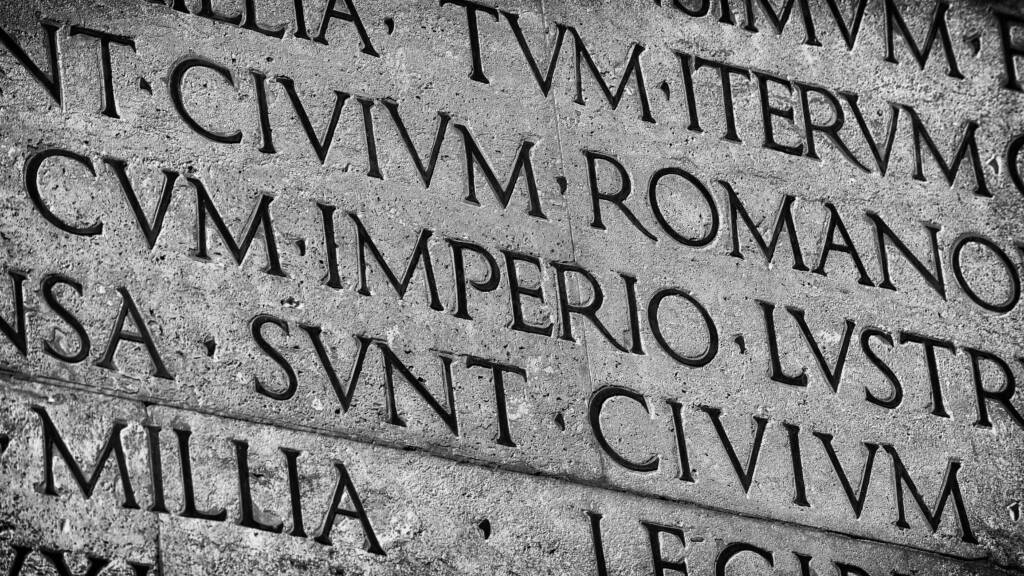
Latin 3 Honors

Take your knowledge and appreciation of Latin to the next level. Read some of the best Latin prose and poetry ever written or spoken. Let Caesar tell you how he conquered the three parts of Gaul. Be moved by the eloquence of Cicero as he reminds Romans of the virtues that made their country great. And marvel at how Catullus could express the deepest human emotions in just a few, well-chosen words.
In Latin 3, you will visit our library of great authors. Your library card will give you access to the timeless words of the greatest Roman poets, storytellers, and orators. Your skills with the Latin language will give you direct access to the beauty and power of their thoughts.
The purpose of this course is to strengthen your Latin vocabulary as well as your appreciation for well-crafted writing. You will go directly to the source and recognize why Latin and those who spoke it are still relevant today.
Major Topics and Concepts
Segment 1:
- Caesar vocabulary and accompanying English derivatives
- Gerunds
- Gerundives
- Passage from Caesar’s Commentaries on the Gallic Wars
- Caesar’s Helvetian Campaign
- Deponent Verbs
- Irregular Verbs
- Battle of Alesia/Hercynian Forest/Druids
- Life of Julius Caesar
- Roman archaeological legacy in Provence, France
- Analysis of writing style and content
- Stylistic and rhetorical devices
- Cicero vocabulary and accompanying English derivatives
- Latin passages from Cicero’s In Catilinam
- Entire In Catilinam in English
- Subjunctive mood, 5 uses (volitive, purpose, result, cum clauses and indirect question), 4 tenses (present, imperfect, perfect, past perfect), active and passive voices
- Sequence of tenses using the subjunctive mood
- Structure of an oration
- Cicero’s thoughts from On Oratory and De Officiis
- Life of Tullius Cicero
- Analysis of writing style and content
Segment 2:
- Poetic meter: dactylic hexameter, hendecasyllabics, elision, spondee, dactyl, liquid, etc.
- Oral scansion as a metrical exercise
- Ovid vocabulary and accompanying English derivatives
- Latin passages from the Metamorphoses re: Daphne and Apollo
- Art through the ages using the Daphne and Apollo story
- English passage from the Metamorphoses re: Pyramus and Thisbe
- Catullus vocabulary and accompanying English derivatives
- Life of Catullus
- Assorted Latin poems of Catullus: II, III, V, LXXXV
- Analysis of writing style and content of both authors
- Life of Vergil
- Poetic forms of dactylic hexameter
- Vergil vocabulary and accompanying English derivatives
- Latin passages from the Aeneid: Lines 1-33, 50-64, 81-101, 124-131, 148-153, 198-209
- Oral reading of the introduction to the Aeneid
- Analysis of writing style and content
- Essay writing to include substantiation of position via the Latin text, English translation and assessment of author’s usage of rhetorical devices
Competencies
Gerunds, Gerundives, Deponent Verbs, and Irregular Verbs
Students will demonstrate an understanding of gerunds, gerundives, deponent verbs, and irregular verbs by interpreting and communicating in written and spoken Latin with sentences and short stories.
Subjunctive Forms and Uses, Stylistic Devices and Subjunctive Clauses
Students will demonstrate an understanding of the subjunctive forms and uses, stylistic devices and subjunctive clauses by interpreting and communicating in written and spoken Latin with sentences and short stories.
Meter and Scansion and Stylistic Devices in Latin Poetry
Students will demonstrate an understanding of meter and scansion and stylistic devices in Latin poetry by interpreting and communicating in written and spoken Latin with sentences and short stories.
Poetic Forms and Grammar Devices in Latin Poetry
Students will demonstrate an understanding of poetic forms and grammatical devices in Latin Poetry by interpreting and communicating in written and spoken Latin with sentences and short stories.
The use of SWIMTAG and Stylistic Devices in Latin Readings
Students will demonstrate an understanding of the use of SWIMTAG and stylistic devices in Latin readings by interpreting and communicating in written and spoken Latin with sentences and short stories.

